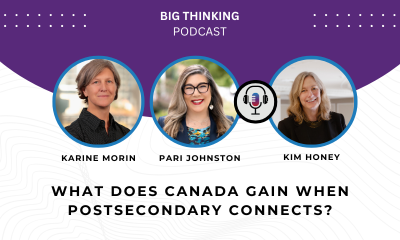Dr. Patricia Louie, Assistant Professor of Sociology at the University of Washington, presented her research on the coping resources that Black Americans use to cope with life in a racially unequal society, as part of the Canadian Sociological Association’s conference at Congress 2022. According to Dr. Louie, “Mental health is often described as a social mirror that reflects social inequities experienced by individuals in environments.” Through her research, she shifts our attention away from the disadvantages of minority groups and towards “the possibility that Black Americans may act in resilient ways that challenge assumptions about the social patterning of coping.” As part of her research, Dr. Louie thus asks the following questions:
- What role do coping resources play in explaining the Black-White paradox in mental health?
- What is the relative influence of each coping resource on the Black-White patterning of mental health?
During her talk, Dr. Louie noted that “research on the Black-White paradox has predominantly focused on why Black Americans have better mental health than White Americans.” In sharing her coping hypothesis, she stated that Black Americans may have better coping strategies in terms of self-esteem, perceived family support, religious involvement, and divine control. Indeed, scholars in the United States have documented the extensive efforts of Black parents to enhance their children’s self-esteem by teaching them to reject others’ perceptions of them, as well as by participating in Black social organizations.
Findings from Dr. Louie’s research have shown that the mental health of Black Americans could be worse if it weren’t for such coping resources, and that the “explanatory influence of each of these coping resources differ by outcome.” For instance, Black Americans who have high self-esteem and who experience direct and vicarious forms of discrimination “have lower levels of depressive symptoms than those who experience discrimination and have low self-esteem.” She thus concluded that “coping resources help explain the Black-White paradox in mental health but not all coping resources are equally helpful.” A more “dynamic understanding of the relationship between race and coping resources within the stress process” would be beneficial, Dr. Louie suggested.

What does Canada gain when postsecondary connects?
← Big Thinking Podcast homepage Introduction | About the guests | Transcript | Follow us Introduction Canada’s future is being written in the places where people learn and in how those places connect. If collaboration holds the key to shaping that...

Canada's AI leadership calls for all expertise at the table
After bringing together humanities and social sciences AI experts for a consultation with the federal government’s AI Strategy Task Force on October 20, the Federation submitted the following on October 31. Written submission to the AI Task Force...

Building a strong research future with Budget 2025
On November 4, 2025, the federal government tabled its 2025 Budget: Canada Strong. Through its investment to attract international talent, this Budget recognizes the vitally important work of researchers. Notably, Budget 2025 commits $1 billion over...
